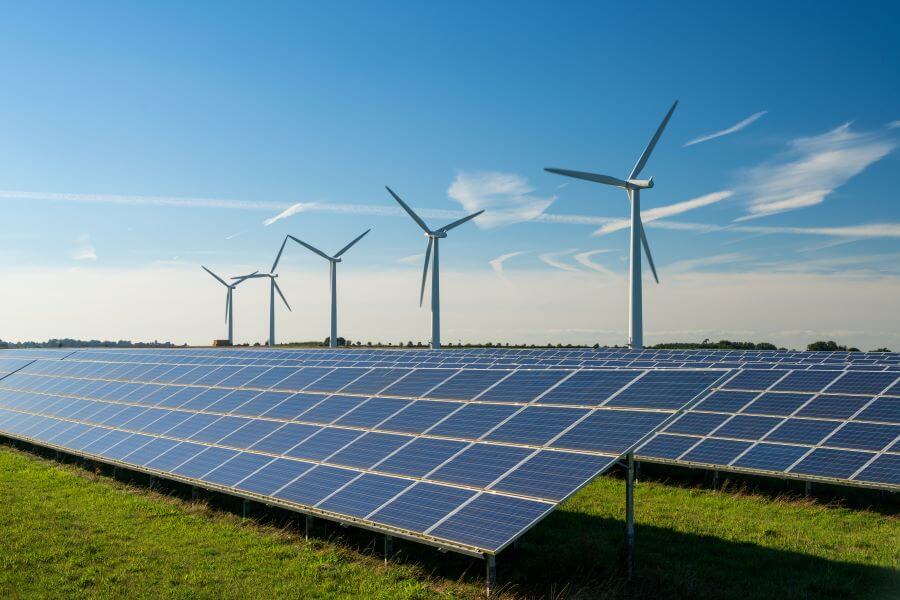Adopting sustainable energy solutions is becoming increasingly important for businesses aiming to reduce their environmental footprint and enhance ope
Adopting sustainable energy solutions is becoming increasingly important for businesses aiming to reduce their environmental footprint and enhance operational efficiency. By embracing renewable energy sources, companies can enjoy significant financial benefits and improve their reputation.
Here are various sustainable energy options and practical advice on how businesses can implement these solutions effectively.
Solar Energy Solutions
Solar energy is a highly viable option for businesses adopting renewable energy. Solar panels, installed on rooftops or other available spaces, convert sunlight into electricity. This electricity can power business operations, reducing reliance on traditional energy sources. Businesses can start by conducting an energy audit to determine their energy needs and identify suitable locations for solar panel installation.
Financial aspects are also crucial when considering solar energy. Although the initial investment can be significant, the long-term savings and return on investment (ROI) are substantial. Businesses can also explore financing options such as solar leases or power purchase agreements to mitigate upfront costs.

Wind Energy Solutions
Wind energy offers another effective solution for businesses aiming to reduce their carbon footprint. Wind turbines, which generate electricity from wind, can be installed on business premises or through partnerships with wind farms. Feasibility depends on factors like location, wind speed, and available space. Businesses in windy regions can particularly benefit from this renewable energy source.
The benefits of wind energy include reduced energy costs and a positive environmental impact. However, businesses must also consider the challenges, such as initial installation costs and potential aesthetic concerns. Despite these challenges, many businesses have successfully adopted wind energy. For instance, a manufacturing plant might install a wind turbine on-site, generating electricity to power its operations and significantly cutting energy costs.
Energy Efficiency And Conservation
Implementing energy efficiency measures is a cost-effective way for businesses to reduce energy consumption. Simple steps like upgrading to energy-efficient lighting, improving insulation, and maintaining equipment can save energy. Energy audits play a vital role in identifying areas where improvements can be made. These audits provide a detailed analysis of energy use, highlighting inefficiencies and opportunities for conservation.
Businesses can adopt various strategies to enhance energy efficiency. Implementing automated systems to control lighting, heating, and cooling can optimise energy use. Encouraging employees to adopt energy-saving habits, such as turning off lights and equipment when not in use, also contributes to conservation efforts. Reducing energy consumption not only lowers costs but also supports sustainability goals.
Implementing Sustainable Energy Solutions
Transitioning to sustainable energy involves several key steps. Initially, businesses should assess their current energy use and identify suitable renewable options. Planning involves setting clear goals, determining budget constraints, and exploring available incentives. Implementation requires selecting the right technology and partners. For example, installing solar panels or wind turbines may involve working with experienced contractors to ensure proper installation and maintenance.
Businesses should also consider platforms that facilitate trading renewable energy credits. These platforms enable businesses to buy and sell green energy, helping them meet sustainability targets while supporting the broader adoption of renewable energy. Collaborating with experts and consultants can streamline the transition process, providing valuable insights and ensuring effective implementation. A platform for energy traders like Trayport can also provide significant advantages in managing and optimising energy use.
Future Trends In Sustainable Energy
The future of sustainable energy is promising, with emerging technologies set to revolutionise the sector. Innovations such as advanced battery storage, smart grids, and artificial intelligence are enhancing the efficiency and reliability of renewable energy systems. These technologies enable businesses to optimise energy use, store excess energy, and integrate renewable sources seamlessly.
Staying ahead of trends is essential for businesses aiming to lead in sustainability. By continuously monitoring advancements and adopting new technologies, businesses can improve their energy strategies and maintain a competitive edge. The future of sustainable energy offers numerous opportunities for businesses to enhance their operations, reduce costs, and contribute to a greener economy.
Choosing to adopt sustainable energy solutions offers significant benefits for businesses, from cost savings to improved brand reputation. Embracing sustainable energy is not just a choice but a strategic move towards long-term success and environmental stewardship.



















































































































COMMENTS